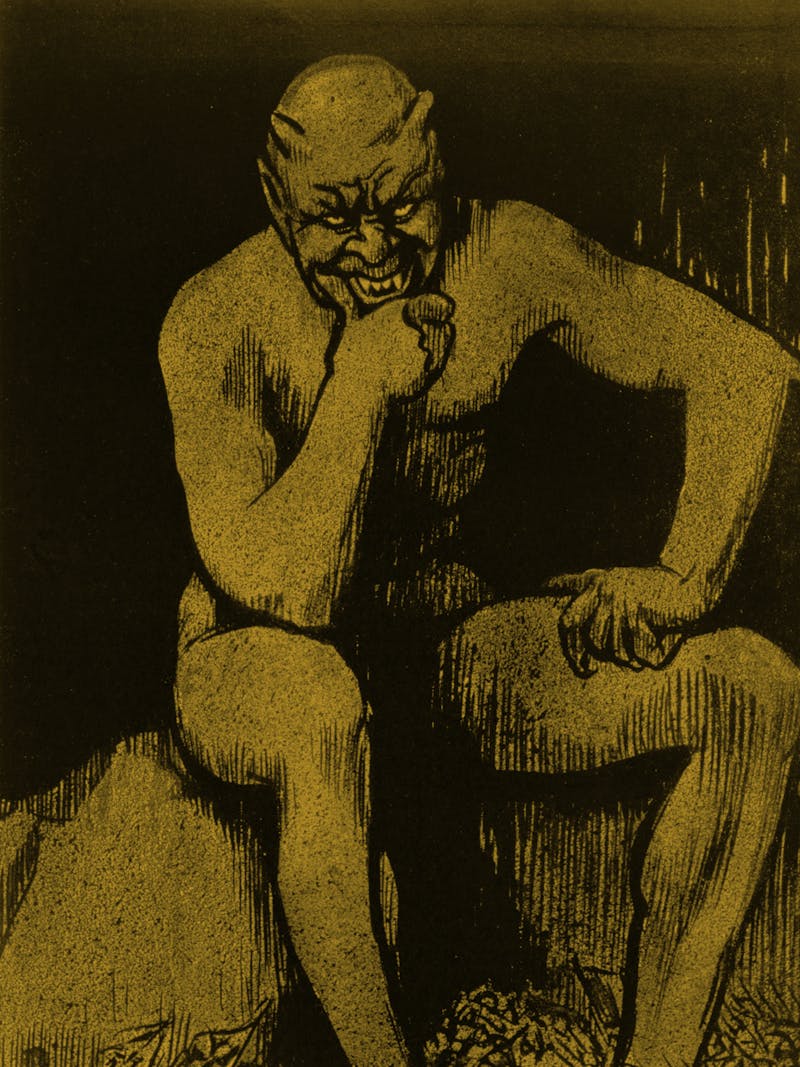
When the Framers of the U.S. Constitution arrived in Philadelphia in late May 1787, they had many issues on their minds. But as their Constitutional Convention got underway, they began to focus on one more than any other: graft in government. They were especially preoccupied with a kind they saw as endemic in the British Parliament, whose members were routinely manipulated by the king through assorted means of bribery. And they became determined to devise a system that would forestall it.
The Framers’ intellectual guide on this issue was Montesquieu, the French political thinker who inspired their institutional structure of checks and balances, but who influenced them equally with his civic-republican concepts of virtue and corruption. Without virtue—the willingness to put the public interest above one’s own—Montesquieu believed, no institutional structure of any kind, however well thought out, will succeed for long; and where corruption—virtue’s antithesis—becomes too widespread, it will bring any nation inevitably to ruin.
The same civic-republican vocabulary remains with some of the most acute observers of American politics today: In 2015, the former U.S. Senator Gary Hart published The Republic of Conscience (from which an excerpt in Time was titled explicitly, “America’s Founding Principles are in Danger of Corruption”). Arguing that the political process has by now been corrupted thoroughly, Hart described a “sinister system combining staggering campaign costs, political contributions, political action committees, special interest payments for access, and, most of all, the rise of the lobbying class.” He expressed particular amazement that once-illegal campaign fund-raising practices had now been condoned by the U.S. Supreme Court, calling this the “legalization of Watergate.”
How did we come to this?
In the nineteenth century, the practice of lobbying was everywhere condemned as against public policy, but by the mid-twentieth, it was widely acceptable—without the Supreme Court ever pronouncing on its constitutional legitimacy. Starting in the 1970s, however, the Court began systematically stymieing all congressional efforts to limit campaign expenditures. It did this in two ways: first, by whittling down the once broad, republican conception of what constitutes political corruption only to explicit, quid-pro-quo bribery; and second, by equating the expenditure of money in political campaigns with free speech. In Corruption in America, Zephyr Teachout quotes Justice Kennedy’s majority opinion in the infamous Citizens United decision—“Favoritism and influence are not ... avoidable in representative politics”; “Democracy is premised on responsiveness”—which consecrated the equation and, along with it, a dystopian vision of the democratic process.
Taken as a whole, Teachout believes, the Court’s recent campaign-finance decisions constitute a revolution in the underlying philosophy governing this area of the law, while masquerading as straightforward statutory interpretation. She contends that the justices have substituted the philosophical premises of the Framers’ cautiously optimistic model Montesquieu with those of the ruthlessly cynical English political theorist Thomas Hobbes, by way of the law and economics movement—and ultimately the Federalist Society, with which Justices Scalia, Roberts, Thomas, Kennedy, and Alito have all been associated. Where Montesquieu believed that we’re capable of the motivation to act unselfishly, Hobbes held that we’re irredeemably self-centered and would always pursue our own interest at the expense of others’—and if this is what you believe, you could say a low expectation of ethical behavior in political life reasonably follows.
In Captured by Evil: The Idea of Corruption in Law, Laura S. Underkuffler cites studies showing that the American people are well aware of the extent of corruption in their democracy, one of which concluded that Americans attribute two forces to the phenomenon: “The first is that lobbyists have replaced representatives as the primary political actors. The other force, seen as more pernicious, is that campaign contributions seem to determine political outcomes.” Underkuffler apprehends the grave danger of this situation: “If citizens believe ... that government policies are simply bought and sold, they will feel no responsibility for the successful functioning of government.” This was before the advent of the Trump presidency, in the midst of which the president and his family business have pursued personal interests—at home, in India, and all over the world—while showing no desire to look out for the common interest, or even a basic sense of what that term might mean.
Now, Machiavelli maintained that a political leader of virtue could fortify this quality in the citizenry, while a corrupt one could destroy it completely. But Underkuffler has a more radical view: She believes that political corruption is so pernicious—so “corrosive, distorting, and decomposing” a force, so characterized by “self-involvement, self-indulgence, and the loosening and discarding of the restraints of social bonds”—that it deserves to be called by the name evil, and that whoever is deeply engaged in it is indeed captured by evil. And as my old mentor Wayne Morse, the U.S. senator from Oregon, would often instruct us, “A true liberal must always be on guard against evil, wherever it might rear its ugly head.”